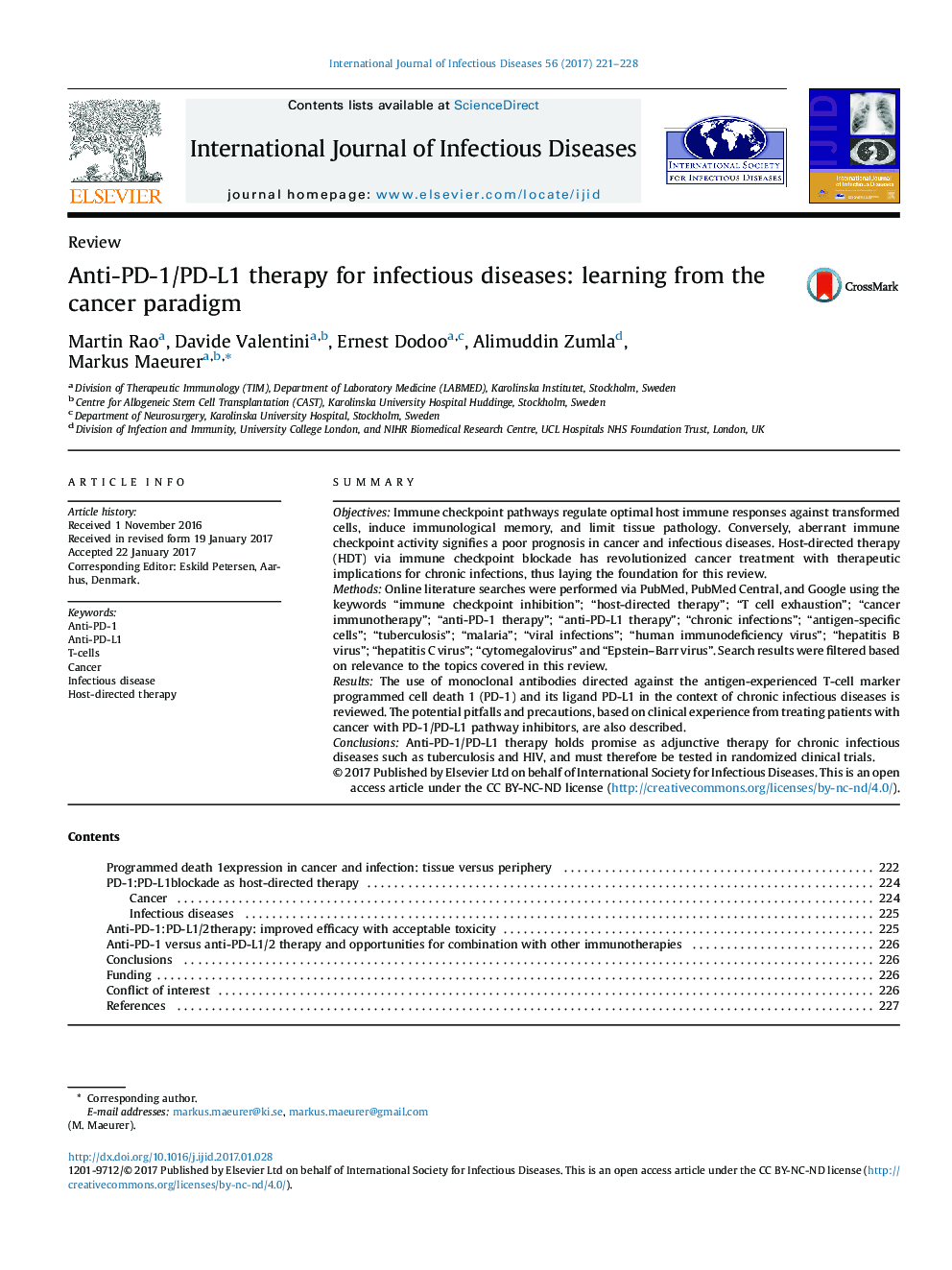| کد مقاله | کد نشریه | سال انتشار | مقاله انگلیسی | نسخه تمام متن |
|---|---|---|---|---|
| 5667587 | 1592037 | 2017 | 8 صفحه PDF | دانلود رایگان |

- T cells are constantly exposed to antigens in chronic diseases, succumbing to cellular exhaustion and reduced immunoreactivity Programmed cell death.
- (PD-1) and cytotoxic T lymphocyte-associated antigen 4 (CTLA-4) expression on antigen-specific T cells marks immunogenic stimuli exposure.
- PD-1 and CTLA-4 identify as immune checkpoints due to their crucial role in regulating the magnitude and quality of T-cell responses.
- The success of PD-1/PD-L1 blockade in cancer prompts extensive clinical evaluation in chronic infections in light of increasing drug resistance.
SummaryObjectivesImmune checkpoint pathways regulate optimal host immune responses against transformed cells, induce immunological memory, and limit tissue pathology. Conversely, aberrant immune checkpoint activity signifies a poor prognosis in cancer and infectious diseases. Host-directed therapy (HDT) via immune checkpoint blockade has revolutionized cancer treatment with therapeutic implications for chronic infections, thus laying the foundation for this review.MethodsOnline literature searches were performed via PubMed, PubMed Central, and Google using the keywords “immune checkpoint inhibition”; “host-directed therapy”; “T cell exhaustion”; “cancer immunotherapy”; “anti-PD-1 therapy”; “anti-PD-L1 therapy”; “chronic infections”; “antigen-specific cells”; “tuberculosis”; “malaria”; “viral infections”; “human immunodeficiency virus”; “hepatitis B virus”; “hepatitis C virus”; “cytomegalovirus” and “Epstein-Barr virus”. Search results were filtered based on relevance to the topics covered in this review.ResultsThe use of monoclonal antibodies directed against the antigen-experienced T-cell marker programmed cell death 1 (PD-1) and its ligand PD-L1 in the context of chronic infectious diseases is reviewed. The potential pitfalls and precautions, based on clinical experience from treating patients with cancer with PD-1/PD-L1 pathway inhibitors, are also described.ConclusionsAnti-PD-1/PD-L1 therapy holds promise as adjunctive therapy for chronic infectious diseases such as tuberculosis and HIV, and must therefore be tested in randomized clinical trials.
Journal: International Journal of Infectious Diseases - Volume 56, March 2017, Pages 221-228